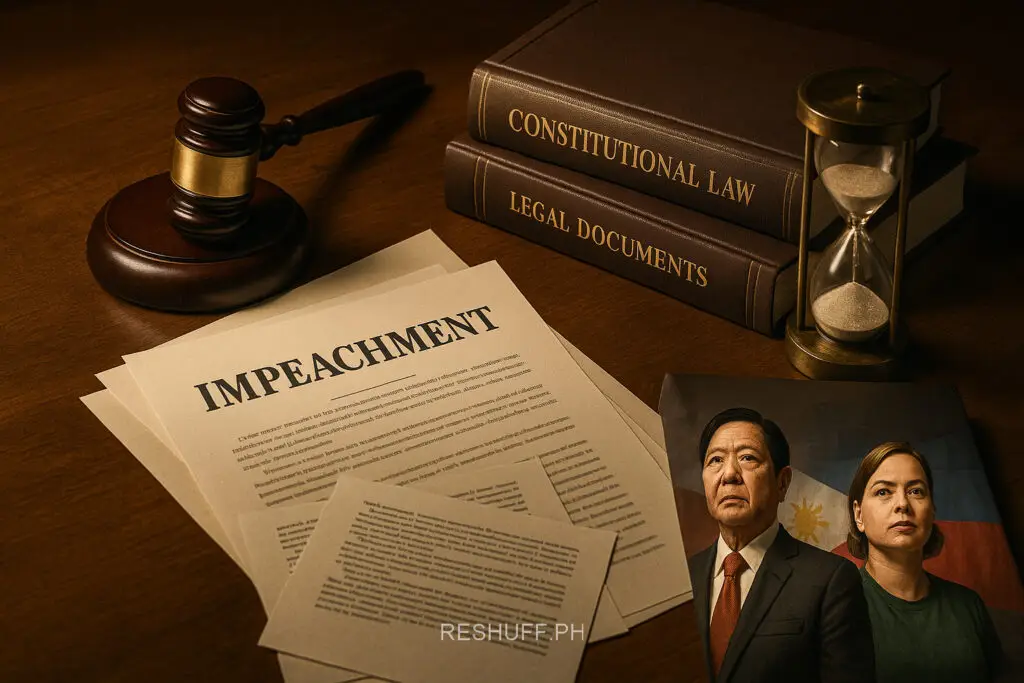Time Runs Out: Why Sara Duterte's Impeachment Case May Already Be Dead
The gavel may never fall on Vice President Sara Duterte’s impeachment trial. Not because of lack of evidence or political maneuvering, but because of something much simpler—the calendar.
“If the impeachment case against Sara Duterte starts being heard on June 2, that case is already dead,” warned election lawyer Romulo Macalintal in a weekend interview that sent shockwaves through political circles.
The stark assessment cuts through months of political theater surrounding Duterte’s impeachment. The case, which accuses her of misusing confidential funds and threatening President Ferdinand Marcos Jr., first lady Liza Araneta Marcos, and House Speaker Ferdinand Martin Romualdez, seemed unstoppable when 215 lawmakers endorsed it in February.
But what started as a political steamroller has ground to a halt—not from resistance, but from the relentless march of time.
A Case Frozen in Time
The impeachment complaint hit the House floor on February 5 with overwhelming support. More than two-thirds of lawmakers backed it, far exceeding the one-third threshold required by the Constitution. The case should have moved swiftly to the Senate for trial.
It didn’t.
When Congress adjourned that same day, the articles of impeachment sat untouched. They never made it to the Senate floor. For months, the case remained in legal limbo while political observers wondered what was happening behind closed doors.
Senate President Francis Escudero finally broke the silence, formally inviting House prosecutors to present their case on June 2. The Senate would convene as an impeachment court the next day, he announced.
But Macalintal sees a fatal flaw in this timeline.
Running Out of Runway
“The present Senate no longer has time—its term ends by June 30,” Macalintal explained, pointing to a procedural reality that few had considered.
The lawyer cited Rule 44 of the Senate, which states that all pending matters die when Congress adjourns or terminates. This means the current Senate has less than a month to complete an impeachment trial—a process that typically takes months.
When the new Senate convenes after June 30, they can’t simply pick up where the old one left off. Any revival would be treated as a completely new case.
And that’s where Duterte’s legal team sees their escape route.
The Constitutional Wall
The Philippine Constitution contains a little-known provision that may prove to be Duterte’s strongest defense: no official can face more than one impeachment case within a single year.
“If there’s a new impeachment case, it would fall under what’s called the prohibition in our Constitution—you cannot have two impeachment cases within one year,” Macalintal noted.
This creates what he calls a “constitutional wall” that even the most determined prosecutors can’t break through. Any attempt to restart the case after June 30 would likely be thrown out as unconstitutional.
“Even if the Senate wanted to continue, they would likely hit a constitutional wall,” he added.
Political Theater Meets Legal Reality
Macalintal’s assessment aligns with earlier concerns raised by Escudero himself, who called the June timeline “practically unworkable.” But the election lawyer’s analysis cuts deeper, exposing the legal quicksand beneath the political maneuvering.
Despite the political urgency driving some lawmakers, procedural deadlines may have already sealed the case’s fate.
“It’s not just a matter of political will or Senate floor debates,” Macalintal said. “It’s a matter of the Senate’s own deadlines and the Constitution’s limits.”
The Waiting Game
The Office of the Vice President confirmed on May 19 that it received the Senate’s letter about the June 2 proceedings. But Duterte’s camp has remained strategically silent about their defense plans.
Sources close to Duterte told The Manila Times that her team is banking on constitutional defenses rather than political alliances to block the trial. Macalintal’s timeline analysis suggests this strategy may be working better than anyone expected.
As June 2 approaches, the question isn’t whether Duterte has the political support to survive impeachment. It’s whether there’s enough time left on the clock for the case to even begin.
In Philippine politics, where dramatic reversals and surprise endings are common, the most anticlimatic conclusion may be the most likely: a case that dies not with a bang, but with the simple passage of time.




